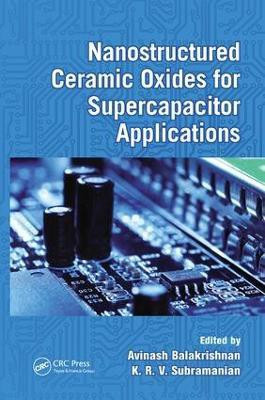Nanostructured Ceramic Oxides for Supercapacitor Applications(English, Paperback, unknown)
Quick Overview
Product Price Comparison
A fresh and innovative technology is currently being recognized as a viable replacement for batteries. Research in the field of supercapacitors, as well as in the area of ceramic materials and their application to supercapacitor development, has spawned Nanostructured Ceramic Oxides for Supercapacitor Applications. Featuring key contributions from well-established experts, this book highlights the field of high-energy and power storage devices, and considers the potential of nanostructured ceramic oxides for supercapacitors. It explores the role of different ceramic oxide systems and their surface nano-architecture in governing the efficacy of a supercapacitor, and presents a detailed understanding of the basic design and science associated with nanostructured ceramic oxide-based supercapacitors. It examines the history and development of this promising energy system, covering the fundamentals, science, and problems associated with this swiftly emerging field. The book also looks extensively into different measurement techniques that can evaluate the performance of this device. Presents an overview of a given field with examples chosen primarily for their educational purpose Provides exhaustive references at the end of each chapter Fits the background of various science and engineering disciplines Contains detailed mathematical analyses Each chapter includes several simple, well-illustrated equations and schematic diagrams to augment the research topics and help the reader grasp the subject. Background theories and techniques are introduced early on, leading to the evolution of the field of nanostructured ceramic oxide--based supercapacitors. Nanostructured Ceramic Oxides for Supercapacitor Applications chronicles significant strides in device development, and benefits seniors and graduate students studying physics, electrical and computer engineering, chemistry, mechanical engineering, materials science, and nanotechnology.


